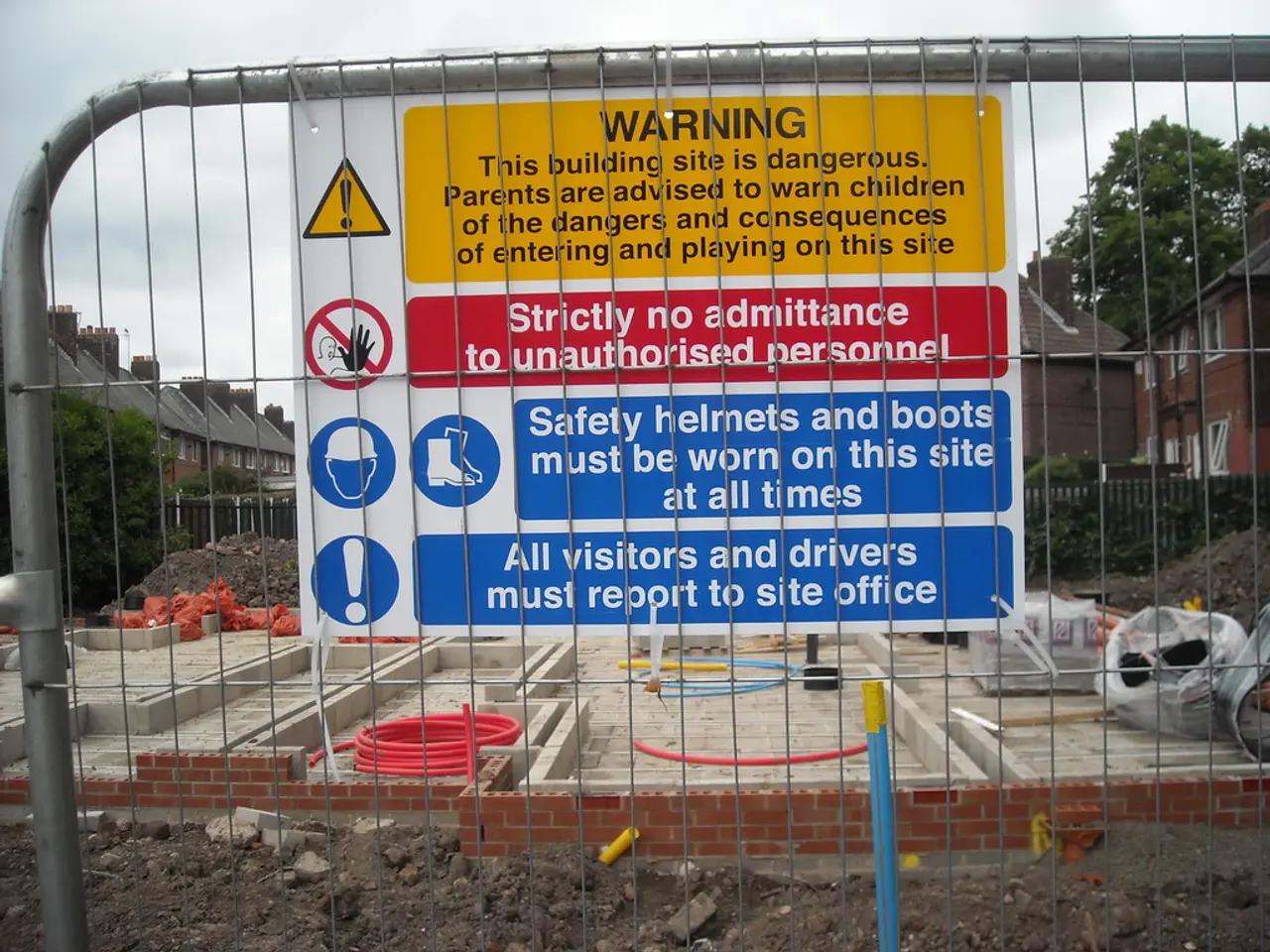Driveway construction permit requirement hinges on a critical factor, as per experts' advice.
In the UK, homeowners often ponder the question of planning permission when considering the creation, replacement, or extension of a driveway. To help clarify the rules, we've put together a guide to help you navigate the process.
Firstly, it's essential to understand that under permitted development rights, you usually do not need planning permission to create, replace, or extend a driveway, provided certain conditions are met. The key factors include the type of driveway surface, drainage, size, property type, additional structures, ground levels, and engineering works.
Permeable materials such as gravel, porous asphalt, or permeable block paving are ideal for driveways as they allow rainwater to drain through. Alternatively, if you use non-permeable materials like tarmac or concrete, the rainwater must be directed to a suitable drainage area within your property, such as a garden border, lawn, flower bed, or soakaway.
There is no fixed size limit for driveways under permitted development rules; the critical factor is how the surface manages water drainage. The work should not involve significant engineering operations or changes in land levels.
However, there are exceptions when planning permission may be required. For instance, if you use non-permeable materials and the rainwater does not drain to a permeable area within the property, and the driveway is larger than 5 square metres. Additionally, if the property is a flat, maisonette, or listed building, planning permission may be necessary.
If you plan to install gates, walls, or fences over 1 metre high adjacent to a public road, planning permission may also be required. In conservation areas, national parks, or other protected areas, additional restrictions may apply.
When in doubt, always check with your local planning authority before starting work on a driveway to confirm if you need planning permission, especially if your project involves non-permeable surfaces, listed buildings, or changes near public roads.
Companies like Marshalls offer permeable block paving in six different color options, while B&Q provides block paving suitable for both driveways and patios, available in various shades and in both permeable and non-permeable options.
In conclusion, understanding the rules for obtaining planning permission for a driveway under permitted development in the UK can help you create a welcoming approach to your home while ensuring compliance with the UK planning rules and avoiding penalties from unauthorised development.
- When considering the installation of gates, walls, or fences near your home and garden in the UK, keep in mind that planning permission may be necessary if they are over 1 meter high and adjacent to a public road.
- If you're planning to create a home-and-garden lifestyle that includes a new driveway, opt for permeable materials such as gravel, porous asphalt, or permeable block paving to allow rainwater to drain through, ensuring compliance with UK planning rules and avoiding penalties from unauthorised development.




